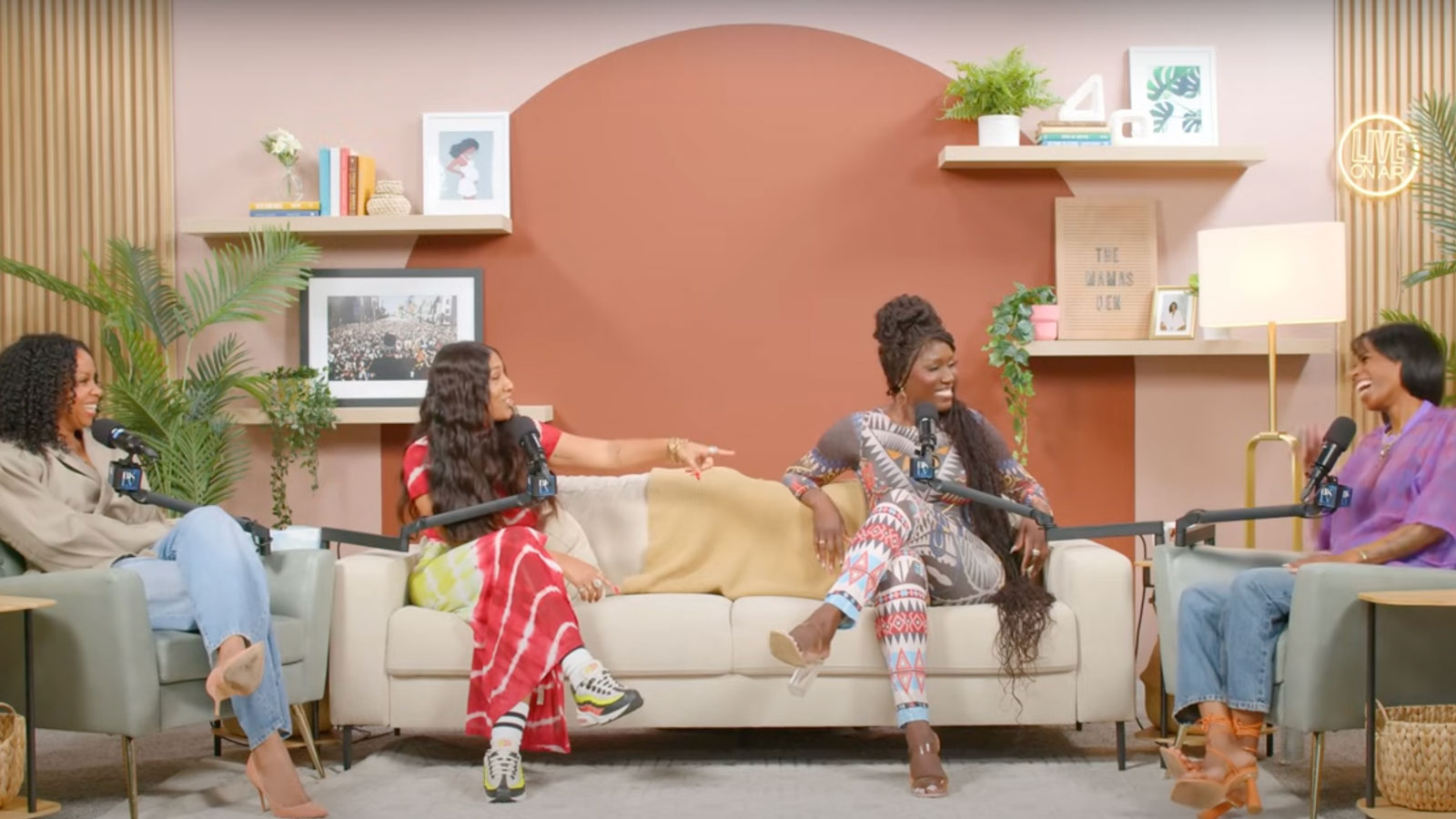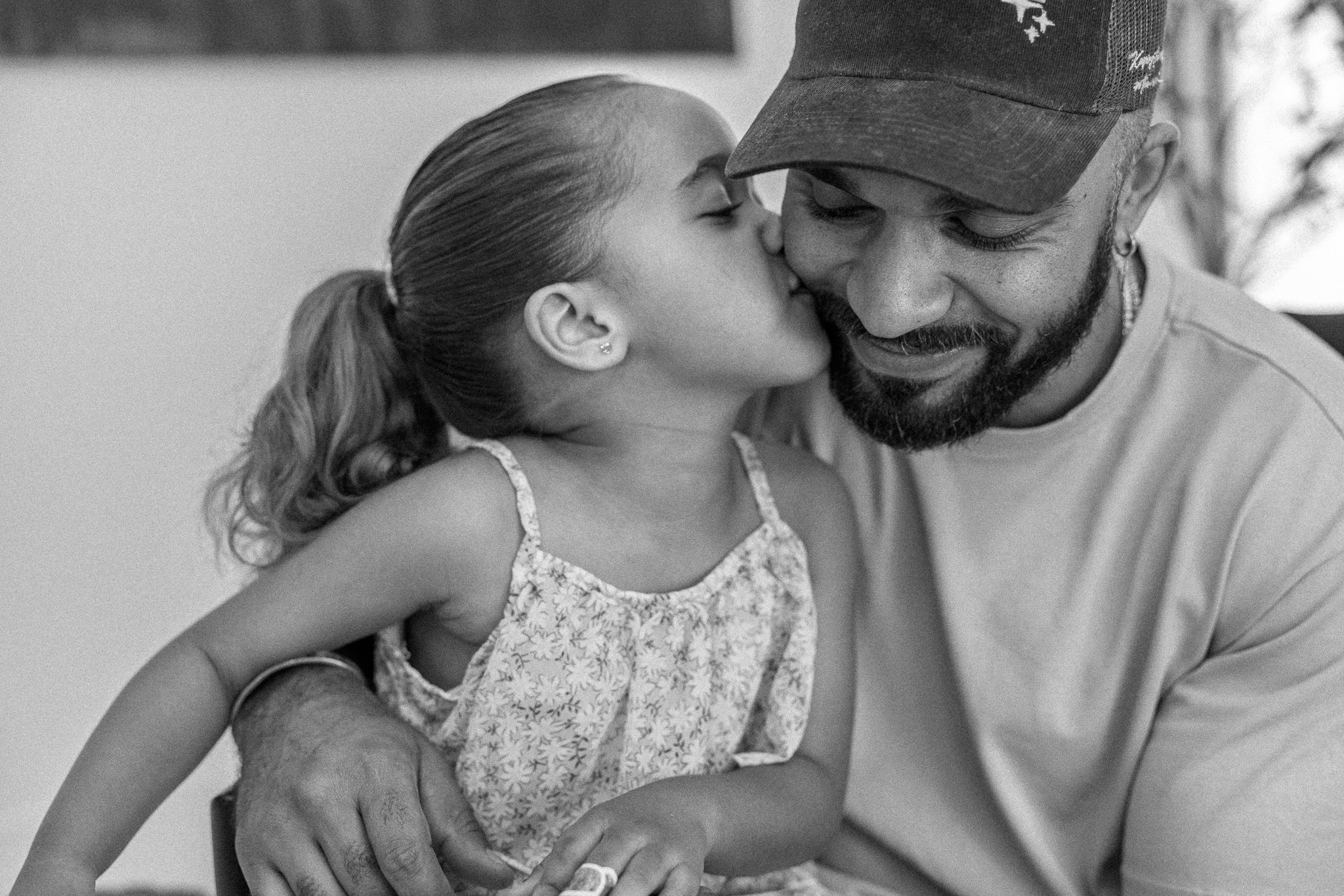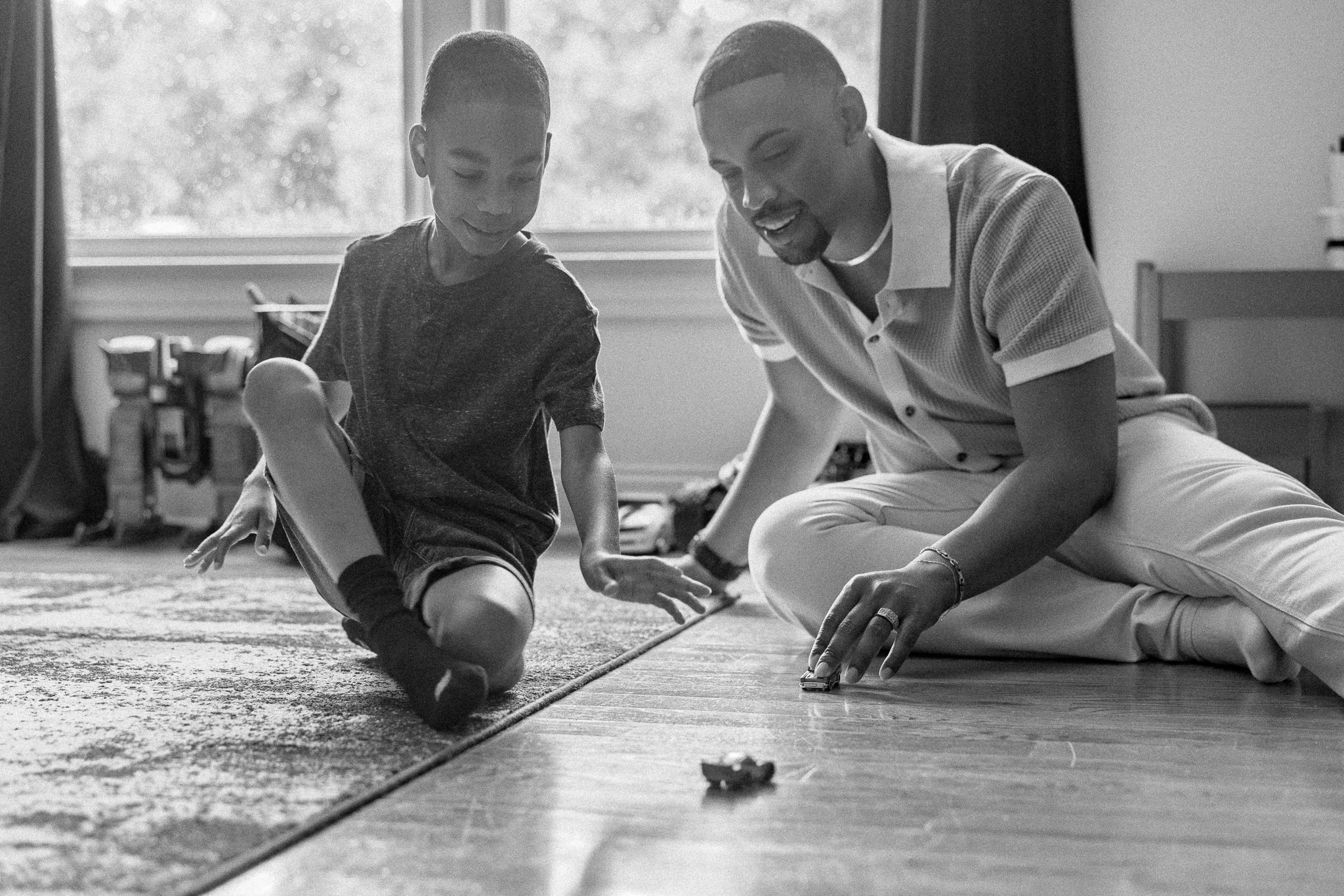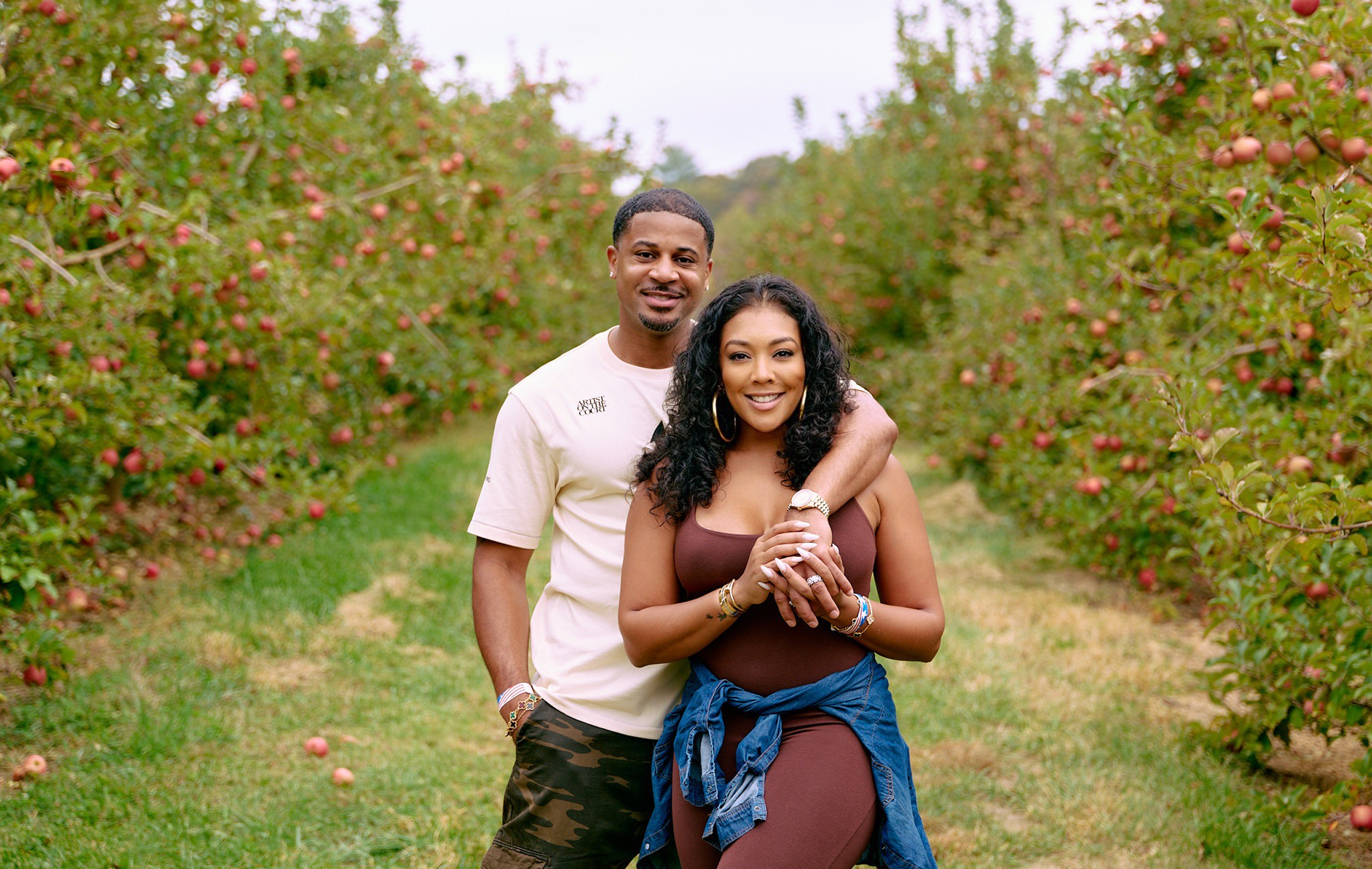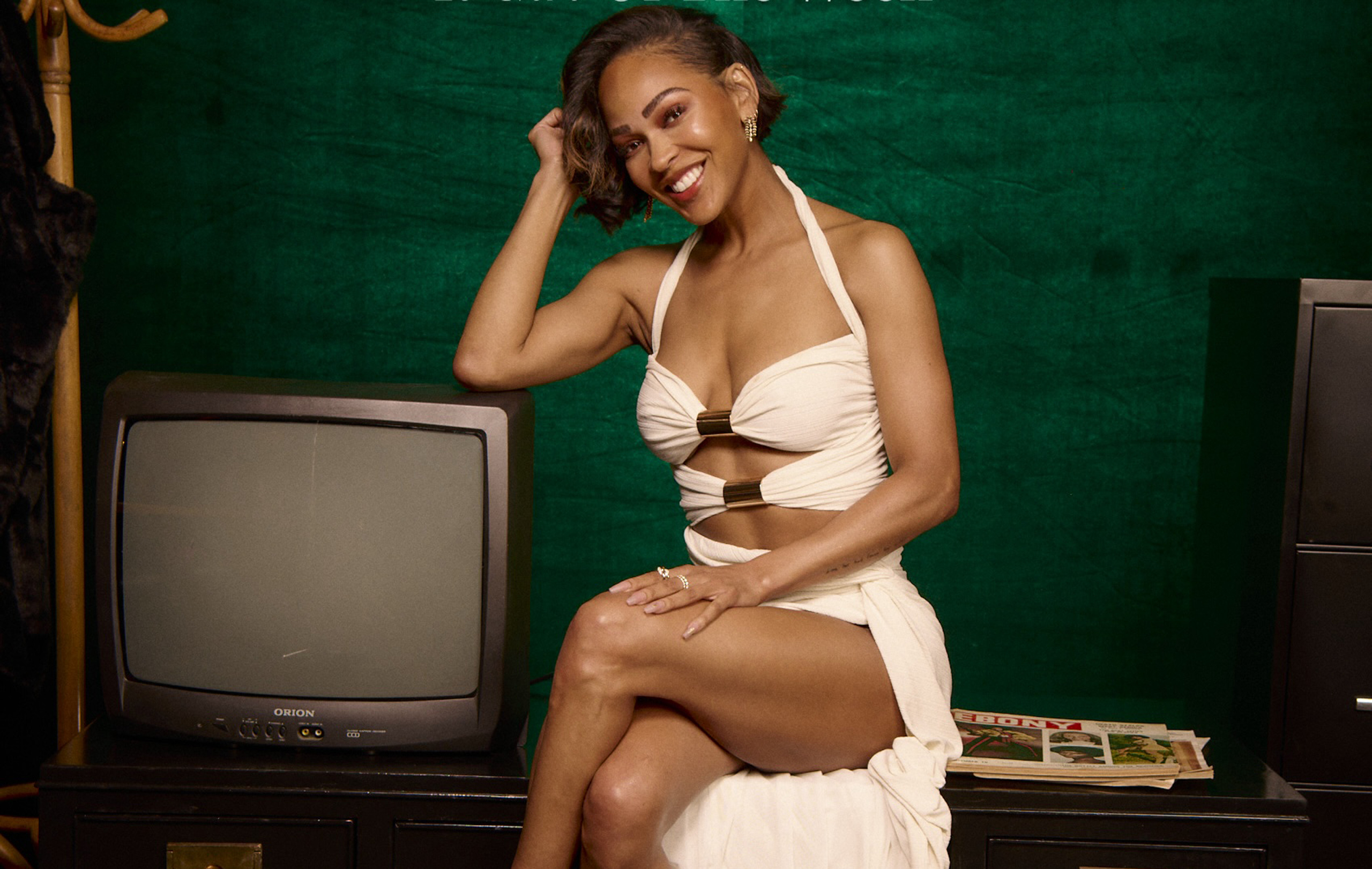
Russell Hornsby
Russell Hornsby, photographed by Christian Adkins
“Through being consistent, being present, being persistent. That’s how you show your love. I mean, they say words are beautiful, but deeds are divine. [My kids] can only know through the deeds.” – Actor Russell Hornsby
Russell Hornsby is a brilliant brother and talented actor whose focus on mastering his craft eclipses everything in his life — that is, everything except for his family. He has blown me away with the fathers he has portrayed, including in the Netflix series Seven Seconds and, most recently, the feature film The Hate U Give, and I wanted to talk about the father he is in real life.
Jeff Johnson: People talk about how they love their kids and how our babies feel our love when it shows up. How do you think your little ones feel Daddy’s love at 12 months and at 3 years?
Russell Hornsby: I think they feel my love first and foremost by my presence, just by how I show up. I’m a very playful and exuberant father. I think the actor in me is part of my being a father. I’m silly. I get on the ground with them and play with them. And we have this ritual — we go high five, pound, handshake, man shake. And then I taught my [oldest], “To be or not to be, that is the question.” And then my other son I have doing Macbeth: “Tomorrow, tomorrow and tomorrow.” He’s one. That’s how I show my love.
I think it’s through being consistent, being present, being persistent. That’s how you show your love. I mean they say words are beautiful, but deeds are divine. They can only know through the deeds. That’s 5 years of deeds, it’s 10 years of deeds, it’s 18 years of deeds, it’s a lifetime. It’s every day.
And it’s even more of a challenge because I’m away. FaceTime helps a lot, but you have to give as much as you can when you’re present, and my challenge has really been when I’m in their presence to stay present.
JJ: I’m guessing that your time abroad has impacted you as a student and as a man. How important is it to you for your sons be citizens of the world?

Russell Hornsby photographed by Benjo Arwas
RH: It’s important. Exposure is important. You have to think past your street, past your block, past your hood, so to speak. It’s important, I think, to start with road trips to seeing other parts of the state and then being able to get your kids exposed to what air travel is like and train travel is like, you know, all the things that encompass travel, you know, packing a bag, making sure they, they know that you’ve got to be able to carry your own. That’s important. And then as you get out there and when they see mommy and daddy interacting in different parts of the world, it’s a symbiotic thing. It just kinda comes.
Through exposure, they pick up things, and they don’t even know where they got it from. And they start to think differently. They interact differently with different people. They’re more open to a broader spectrum of people. You’ll notice it in their friendships. I think exposure just across the board is important. Obviously, travel is of paramount importance because you need to consider it ain’t all about you all the time.
JJ: Speaking of “it ain’t all about you all the time,” how does being a good husband impact being a good father?
RH: As I said, words are beautiful, but deeds are divine. Being a father and being a husband is really about showing up every day. I treat my wife like my girlfriend, you know, and just constantly letting her know I love her, but at the same time, it’s about that, that willingness and that ability to get your butt up every morning and doing the little things, the intangibles and not losing sight of that. Me being an artist and an actor of certain recognition, back in 2004 Roscoe Lee Brown told me, “never mistake your presence for the event.” So therefore, once the camera is not rolling and the lights are off, it ain’t about me.
As a husband, I really try my damnedest to put my wife and my family first as much as I can because I know that so much of my life revolves around what I’m doing. And so when [I’m not working], it’s about them. It’s about my wife, and wives know, women know if your man is showing up.
One of my boys told me, “You want to make sure your wife stays smiling because that carries, that permeates. She can fake it, and people can tell if your wife is faking it. But that smile is genuine.”
When you go to a dinner party, when you go to the cookout, when you go to aunt and uncle’s house for Christmas and Thanksgiving, that smile is genuine. People can tell how your wife regards you. Is there is a difference? As a man, I have to take care of business, make sure the check is coming home, I’m home on Friday and Saturday night, answer the phone when she calls. It needs to be all good at the crib. I think all of the little things are important. It’s those small things and consistent things that keeps a smile on my wife’s face, and it’s important to me that I keep that smile on her face.
JJ: Growing up, who was your fatherhood mentor or model?

Russell Hornsby photographed by Benjo Arwas
RH: I have two uncles on my mother’s side. They were stand up guys married for over 30-40 years to the same women. They have three kids each, and they were the kind of people who were in the community. People know who they are. Again, it’s those intangibles. I watched how my uncle walks through the neighborhood and how people regard him.
I watched, growing up, how people treated him and how he treated other people, and that lands on you. That consistency — seeing them every day or every couple months and they were the same person, how they treat their children and how their children regard them. Then seeing how their wives regard them, how they can be playful and joyful and sexy. I’m not saying this at 16, 17, 18 years old, but I’m bearing witness to a healthy relationship. So as I was courting my wife, I found myself taking on some of the traits of my uncles. Specifically, how they dote on their wives and tell little funny jokes and then get silly and whisper in her ear.
JJ: You’ve had several roles that have brought home the need to prepare your boys for a harsh world as black men. Is there anything that you’re doing with them directly at 1 and 3 to prepare them?
RH: Right now, it’s, “You fall down, get up.” I’ve noticed myself, with the three-year-old. I just sit back and watch him. You see how they react: How long do they cry? Do they cry at all? And if they do, how long does it take them to stop crying? And then I say, “Alright, get up. You’re all right. You’ll be okay.” You’ve got to do that. I mean that’s just, that’s how it is today. In two years [the process] will be different and in four years it will be different. But right now it’s just: “You’re all right. You ain’t hurting, you ain’t bleeding. You didn’t crack your head open, you’re okay.” And again, you can only do that when you are present. That only has an effect because of your presence. If you’re an absentee or part-time parent, it doesn’t work.
JJ: What’s your greatest fatherhood joy?
RH: Right now, just their birth. They have 10 fingers and 10 toes, and they’re healthy. They have no ailments. They are just regular boys. Just the fact that they’re in this world means everything.

Russell Hornsby photographed by Benjo Arwas
Related Articles
Bozoma Saint John talks Black motherhood, grief, self-love, and finding joy again. Don’t miss her powerful conversation on building legacy and living boldly.
Tyler Lepley shows the beauty of Black fatherhood, blended family life with Miracle Watts, & raising his three children in this Father Noir spotlight.
Black fathers Terrell and Jarius Joseph redefines modern fatherhood through love, resilience, unapologetic visibility in this Father Noir highlight.
Featured Articles
When Elitia and Cullen Mattox found each other, they decided that they wanted their new relationship together, their union, to be healthier and different.
Celebrate their marriage and partnership with the release of the documentary “Time II: Unfinished Business”
The vision for our engagement shoot was to celebrate ourselves as a Young Power Couple with an upcoming wedding, celebrating our five year anniversary - glammed up and taking over New York.
Our intent is to share love so that people can see, like love really conquers everything. Topics like marriage and finance, Black relationships and parenting.
Meagan Good and DeVon Franklin’s new relationships are a testament to healing, growth, and the belief that love can find you again when you least expect it.
HEY CHI-TOWN, who’s hungry?! In honor of #BlackBusinessMonth, we teamed up with @eatokratheapp, a Black-owned app designed to connect you with some of the best #BlackOwnedRestaurants in YOUR city – and this week, we’re highlighting some of Chicago’s best!

